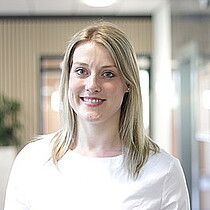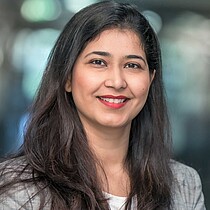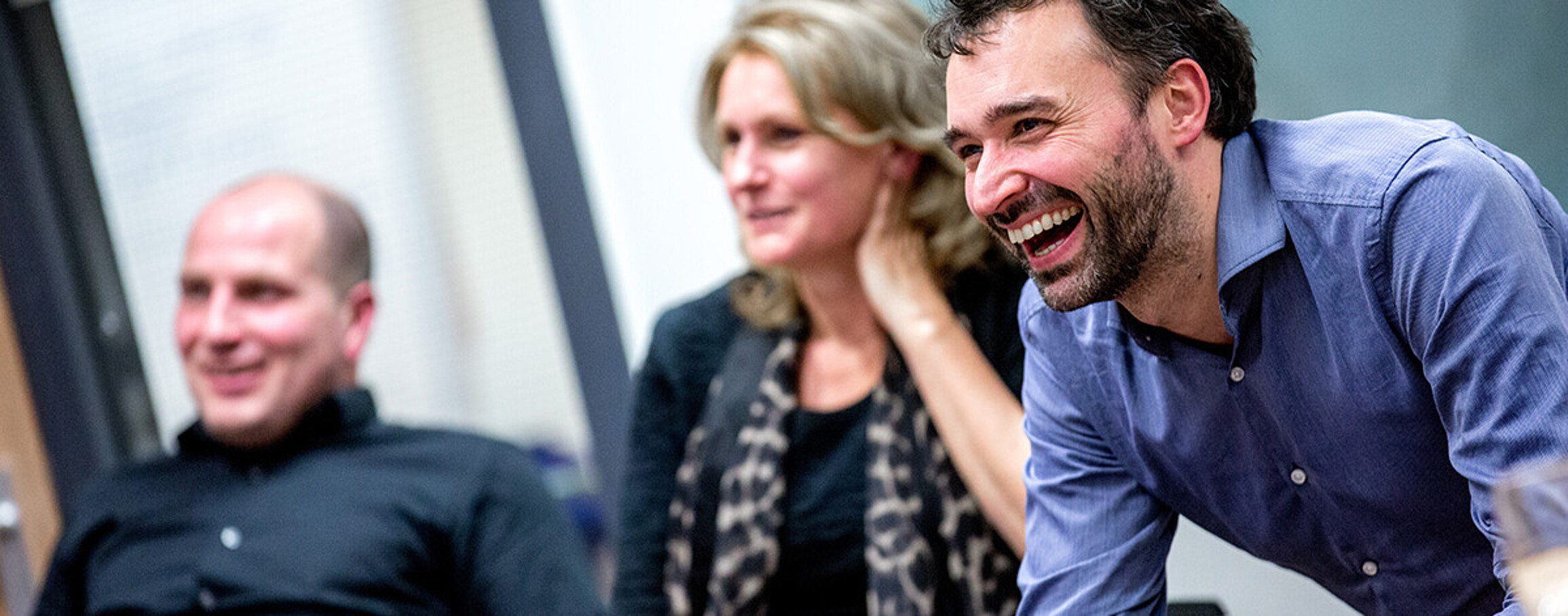Sifra Westendorp
Digital development manager at Anthony Veder
This DPDT programme offered the tools and aspects of digital transformation, which gave me a solid foundation to help my company make that step towards digital transformation.The Diploma Programme in Digital Transformation opened my eyes to innovation, how to approach it and provided the tools for a hands-on approach.

How new knowledge can optimise a digital transformation
Sifra Westendorp began working as a digital development manager at gas shipping company Anthony Veder in 2018, just as it began its digital transformation. She joined RSM’s Diploma Programme in Digital Transformation at around the same time. “I looked for a university course because I wanted something with weight to it; universities offer a lot of specific knowledge.”
The Diploma Programme in Digital Transformation provides tools, knowledge and skills that enable participants to become advisors for the digital transformations taking place in their organisations.
Sifra recognised the relevance of modules in the Diploma Programme in Digital Transformation for her job. “I very much liked the good mix of theory, knowledge sharing, and the very hands-on approach,” she said. “We had very knowledgeable professors sharing their knowledge and had the opportunity to apply it in practice in the workshops.” The sharing of knowledge is a basic part of the programme, but participants optimise these benefits when they apply their new knowledge in their work and in practice. They can do so straight away.
Digital transformation advisor needed!
Sifra explained the real need within Anthony Veder for people who could help develop a strategy for the company’s digital transformation. “A lot of digital initiatives got ‘lost’ along the way, so we really wanted a solid approach to it this time. I think that’s what made me sign up for the programme,” she said. The programme offered specific skills and tools for digital transformation, innovation and analytics – plus some leadership coaching, all of which gave Sifra the means to help the company move forward with its digital transformation.
Learning from peers’ experiences
Sifra found her fellow participants’ experiences very valuable. Some of them took all four modules of the diploma programme, although completing any three modules in the Diploma means you can obtain the RSM Diploma Programme in Digital Transformation (DPDT). Each module delves into a specific aspect of effective digital transformation.
“I really liked the fact that people were facing the same challenge: to help their company transform, but each from a different perspective. People come from different industries or departments, or with different challenges, but digital transformation binds us together. This gave us the opportunity to share experiences.”
Applying techniques at work
Sifra learned how to formulate a strategic and longer-term vision, which is essential for digital transformation. “We used a hands-on approach, add we could act on it the next day. In other words we cut that very broad strategic vision into small first steps towards that longer-term vision,” Sifra said. “There was a nice balance between ideas for ‘tomorrow’ and ideas for ‘next year’.”
The technique of design thinking that she learned in the programme could be applied at work immediately. “We were shown some techniques for interviewing – I actually took that sheet to work and used it during an interview. It helped me to gain a solid understanding of the problem. So, design thinking was the most valuable insight and take-away from this programme for me.”
Opening eyes to transformation
“The programme opened my eyes to innovation, how to approach it, and the tools for that hands-on approach. For example, design thinking is booming with innovation but it was not mentioned within my company, so I really tried to incorporate it. On a more personal level, this course gave me the confidence to have grown-up talks with C-level people in my company. I’m more visible: people take me more seriously.”
Sifra’s considers that the programme contributed to her career in the sense that she feels more knowledgeable and she is now regarded as more valuable in the company. “People tend to be more ready to accept what I am saying,” she explained.
Strategic Impact Project: unique but similar challenges
After completing at least two modules in the programme, participants can start their Strategic Impact Project, designing actionable plans that can help to produce digital transformation; it’s a way to address challenges in organisations and to realise improved business performance. The challenge for Sifra was unique – she was the only participant from a maritime company – but the steps for everyone were similar; identify and understand the problem, talk to a lot of people, create empathy for the problem and then consider the long-term vision of the company.
Sifra explained: “My specific problem was the company’s 30 vessels sailing around the world. Every vessel is a small factory with its own rules and ways of working, and a lot of administration on board is still done as hard copy, so it’s cumbersome to get it from A to B. People still need to do a lot of administration; how can we solve that?
“Others had tried to introduce a solution for this several times in the last five years, but it became stranded time after time – it wasn’t easy. The DPDT programme helped me to find a framework for approaching the problem by interviewing people, getting a deep understanding of it, by listening to them and combining this with the long-term vision of the company and its strategy.”
Devising a solution step-by-step
“Of course, you only every have limited time for a project like this, so the Strategic Impact Project work I handed in for assessment was only a very thorough definition of the problem, but I think that in itself it was super-valuable,” says Sifra. “I don’t think it would have been possible to get a design for the solution at this point, but for the first time in five years we now have an understanding of what the problem is.
“It is a very unique problem, but it involves people and change – and people fear change. You need to somehow merge the involvement of a company, the people and technology to achieve innovation.”
Define the problem and move on
Sifra now has a clear definition of the company’s problem and can now move forward. She is still learning after her journey of personal development. “I really saw myself grow, and when I think of how I was during the first module and where I am now, I made a lot of progress. That was wholly due to the programme.”
For more information about the Diploma Programme in Digital Transformation, see www.rsm.nl/dpdt.

Programme advisor
It's my priority to help you identify how you can meet your professional objectives, so reach out and let's make a plan for your personal development.
